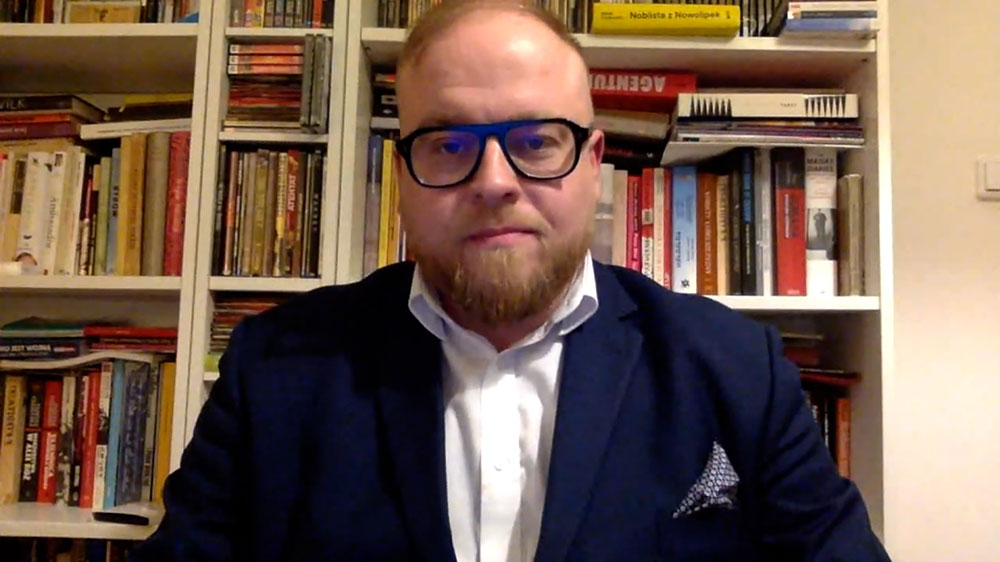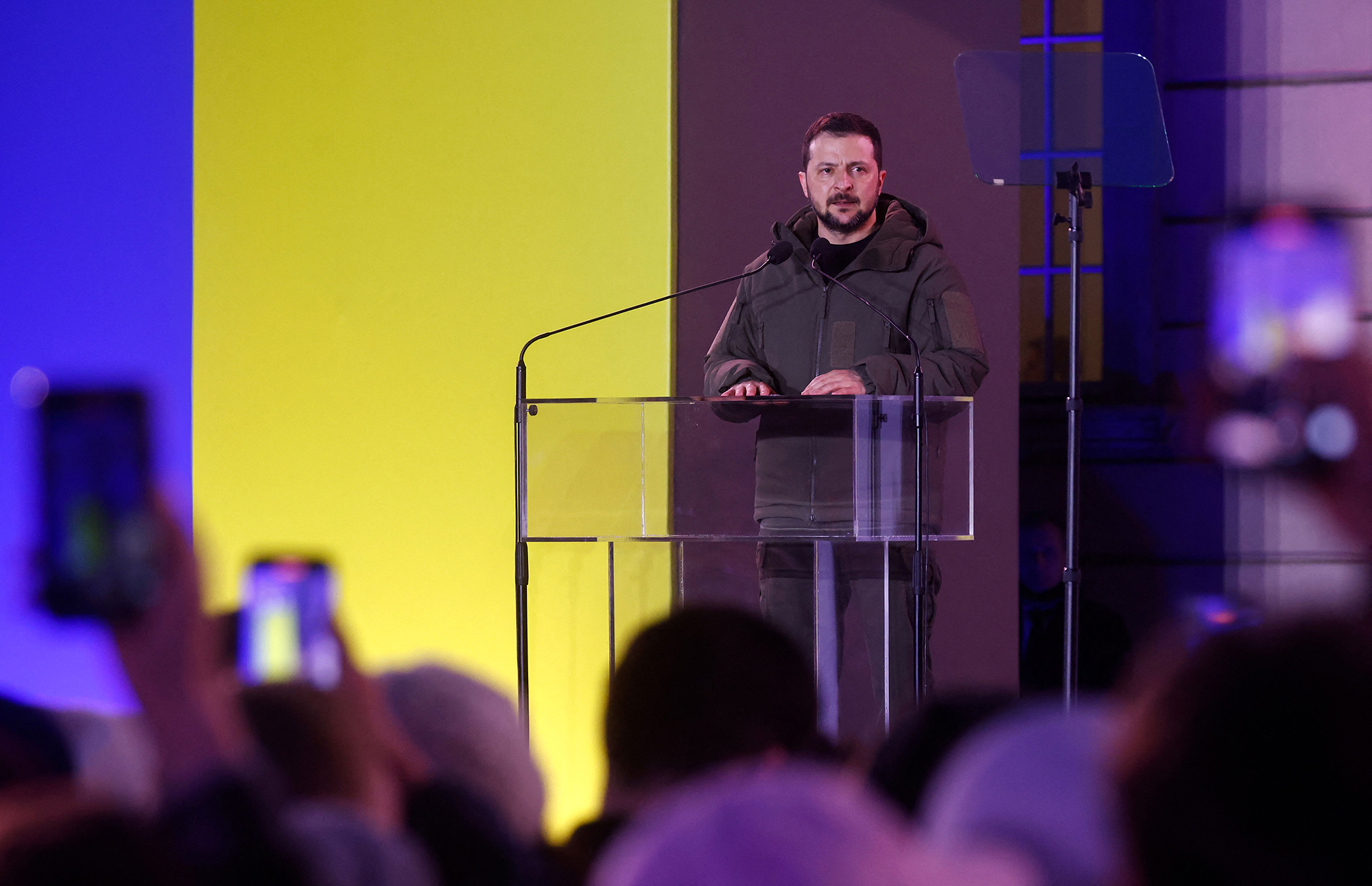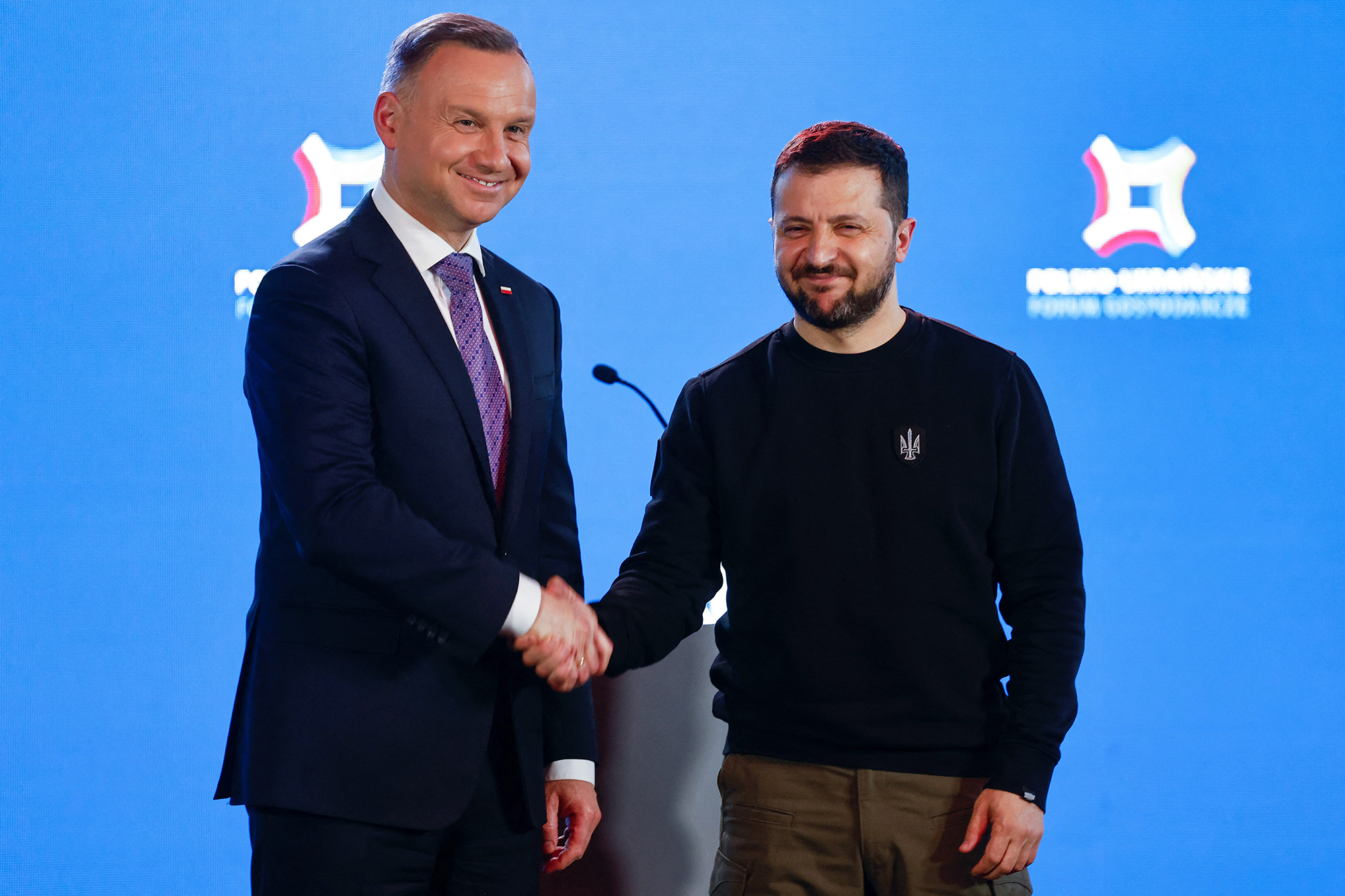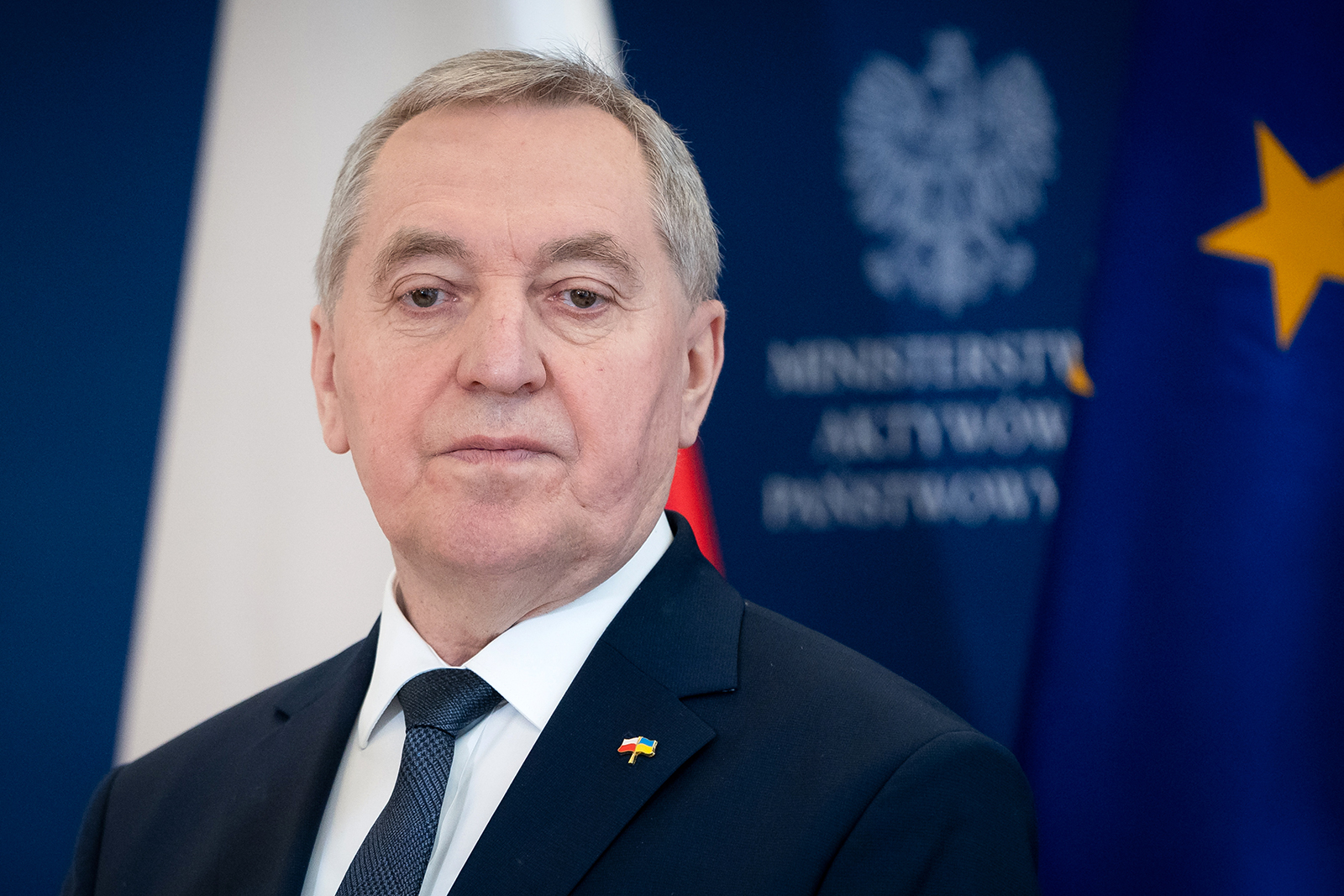
Our live coverage for the day has ended. Follow the latest Ukraine news here or read through the updates below.
FBI director visits Texas college for in-depth discussion about agency’s role in Ukraine
From CNN’s Holmes Lybrand
FBI Director Christopher Wray spoke at length about the war in Ukraine Wednesday night in front of an audience at Texas A&M University in College Station. He visited the school for an in-depth discussion on the FBI’s “involvement in current events and challenges that will face the nation,” according to A&M’s website.
“As I said, the war ain’t going so hot for the Russians. And so, there are a lot of Russians, including Russian intelligence service folks, who aren’t too happy,” Wray said.
Wray went on to say there are a lot of “unhappy Russians” in the intelligence service that the FBI would like to recruit, but “in a different way.”
“We want those unhappy Russians to know we’d love to talk to them,” Wray told the audience of university students. “And they can maybe, you know, have a role in changing the course of history.”
Wray also said while the US is watching and learning from the war, so is China.
He said a lesson China may be focused on is “the impact of sanctions on the Russian economy,” and accused China’s government of “starting to take steps to cushion their economy against potential sanctions.”
Wray said those actions could serve as a clue to potential future actions against Taiwan.
“If they were to choose, for example, to forcibly try to take over Taiwan, you can expect a whole lot of sanctions coming down,” Wray said. “So the fact that the Chinese are spending this much time cushioning their economy, at least in my world … we call that kind of behavior a clue.”
Russia needs to “continue to support” its US relations, foreign minister says
From CNN’s Josh Pennington
Russian Foreign Minister Sergey Lavrov responded to a reporter’s question Wednesday regarding Russia’s relationship with the United States while it continues to supply aid to Ukraine.
“We really are in a hot phase of the war, because Ukrainian Nazis are using American weapons, first and foremost. And the American administration keeps threatening to deliver longer-range and more deadly weapons systems,” Lavrov said. “But nevertheless, I think we should continue to support our relations and we hope that the Americans will wake up at once and return to the negotiating table. We’ll see, we won’t have to wait much longer.”
Some background: Throughout the conflict Russian President Vladimir Putin has continuously framed his invasion of Ukraine – a country with a Jewish president – as a campaign of supposed “denazification,” a description dismissed by historians and political observers alike.
Last year, Lavrov – Putin’s top diplomat – sought to justify Moscow’s goal of “de-Nazifying” Ukraine by claiming Adolf Hitler had “Jewish blood” and that “the most ardent anti-Semites are usually Jews.”
Poland announced Zelensky’s visit to Warsaw ahead of time because it isn’t afraid of Russia, official says
From CNN’s Alex Hardie and Sugam Pokharel

Poland announced the visit of Ukrainian President Volodymyr Zelensky to Warsaw a few days before his arrival because “we don’t feel so afraid of Russians anymore,” a foreign ministry spokesperson said Wednesday.
“It wasn’t easy – and again we are very successful in hiding this information (of senior officials traveling to Warsaw) like we did with (US President Joe) Biden a few weeks ago – but we don’t feel so afraid of Russians anymore and we decided to communicate (Zelensky’s visit) two days before to give the Polish people possibility to travel to Warsaw and participate in two leaders’ speech,” spokesperson Lukasz Jasina said in an interview with CNN’s Isa Soares.
“It wasn’t easy because Warsaw today was blocked much more than during Biden’s, Obama’s or Trump’s visits but it was worth it because there was a symbolism,” he added.
Zelensky met with senior Polish officials and signed bilateral agreements on Wednesday during his first official trip to Poland since Russia invaded Ukraine last year.
Zelensky thanks Polish people for welcoming Ukrainian refugees in speech
From CNN’s Mick Krever and Antonia Mortensen

President Volodymyr Zelensky on Wednesday thanked the Polish people for welcoming Ukrainian refugees and aiding his country’s defense against Russia’s invasion.
“Every Polish city and town, which became so hospitable to our people, I thank you. I thank you that Ukrainian children could live with respect in Poland,” he said, according to an interpreter.
He expressed appreciation that Ukrainians could live as full residents in Poland, thanked Polish volunteers as well as those training the Ukrainian military and thanked everyone who “gives their prayers for Ukrainians.”
“Russia will not win against Europe when Ukrainians and the Poles are standing shoulder to shoulder,” he said, according to an interpreter. “We will learn this. And very much like we are standing with you, we will be enjoying our peace together, in everything, in the European Union. Together in NATO. This will be a continuation of our fate of two free nations. Historical understanding between our two nations.”
Zelensky and Putin are both meeting with neighboring countries’ leaders. Here are the top headlines today
From CNN staff

Ukraine President Volodymyr Zelensky has traveled to neighboring Poland for an official visit to the country, one of its closest partners.
Meantime, Belarusian President Alexander Lukashenko is meeting with Russian President Vladimir Putin in Moscow. The leaders discussed weapons in Belarus, Ukraine’s neighbor.
Lukashenko has also said he intensified talks with Putin about deploying both tactical and strategic — more powerful — nuclear weapons to deal with threats from Ukraine’s Western allies, who he claimed are planning a coup against him.
Here’s what to know:
- Belarusian president in Moscow: Lukashenko and Putin began a two-day summit in Moscow discussing weapons in Belarus. Putin said last month that Russia plans to station tactical nuclear weapons in the neighboring country. He said Moscow had already transferred an Iskander short-range missile system, a device that can be fitted with nuclear or conventional warheads, to Belarus. Lukashenko’s Ukraine “peace proposal” will also likely be discussed during meetings with Putin, a Kremlin spokesperson said.
- Zelensky in Poland: Zelenksy is in Poland to sign bilateral agreements and hold an economic forum with Polish President Andrzej Duda. The Polish president said he supports Ukraine’s “pursuit of EU and NATO membership” and announced that Poland is delivering four MiG-29s fighter jets to Ukraine, in addition to four it has already given in recent months.
- European leaders in Beijing: Meanwhile, French President Emmanuel Macron and European Commission President Ursula von der Leyen are on a three-day visit to Beijing. In a readout, the Elysée Palace said the two heads of state discussed their common desire to engage China to accelerate the end of the war in Ukraine. Macron and von der Leyen will meet with Chinese President Xi Jinping on Thursday.
- Putin on Russia’s global role: Moscow is open to “constructive partnership with all countries” and is not going to isolate itself, Putin said. The Russian president also said Russia has “no bias or hostile intentions towards anyone.”
- NATO: After Finland officially became a member of NATO Tuesday, the chief of the transatlantic military alliance said he is “confident” Sweden will also become a member despite Turkey’s current opposition. Finland’s fold into the alliance also reignited calls from Ukraine to join and Secretary General Jens Stoltenberg has indicated that Zelensky has been invited to the alliance’s summit in July.
- The situation in Bakhmut: Russian forces have made “very slow progress” in Bakhmut over the past six months, despite committing large numbers of soldiers and suffering huge losses, according to Western officials. The Ukrainian military and a soldier near Bakhmut say that heavy battles are raging in the eastern city. Zelensky acknowledged a possible military withdrawal from Bakhmut, but said ammunition deliveries from allies would bolster the defense.
- The latest on fighting: Ukraine has been carrying out deep strikes and stockpiling some ammunition ahead of an expected counteroffensive in the coming months, Western officials believe. The officials said they also believe Russia has a problem getting people to join the military as well as difficulties in providing them with training.
- Detained American reporter: US Secretary of State Antony Blinken urged Russian Foreign Minister Sergey Lavrov to release detained Wall Street Journal reporter Evan Gershkovich “immediately.” The Biden administration is preparing to officially declare Gershkovich as wrongfully detained in Russia, two US officials told CNN, a move that will trigger new US government resources to work towards his release, CNN reported earlier.
Polish agriculture minister resigns over EU’s plan to extend duty-free Ukrainian grain imports
From CNN’s Alex Hardie and Antonia Mortensen

Polish Agriculture Minister Henryk Kowalczyk resigned from his post Wednesday over what he said was the European Commission’s draft decision to extend duty-free and quota-free imports of grain from Ukraine into member states until June 2024.
“Since it is very clear that the basic postulate of farmers will not be met by the European Commission, I have made a decision and resigned from the function of the Minister of Agriculture and Rural Development,” Kowalczyk said in a statement.
Farmers in countries neighboring Ukraine, including Poland, have expressed concerns about the effects of increased imports of Ukrainian grain on their grain prices, the European Commission said in a statement in March.
Last week, Polish Prime Minister Mateusz Morawiecki urged EU leaders to use “all instruments” to “limit the impact” of the influx of Ukrainian grain on the markets of Ukraine’s neighboring countries.
In Kowalczyk’s resignation statement, he said that the Polish government — along with those of Slovakia, Romania, Hungary and Bulgaria — had submitted a request on Friday to the European Commission to “activate the protection clause in the field of duty-free and quota-free imports of grain from Ukraine.”
“However, the European Commission has published a draft extension of duty-free and quota-free imports of cereals from Ukraine for another year, which is to apply from June 2023 to June 5, 2024,” he continued.
Last month, the European Commission proposed a support measure worth 56.3 million euros (around $61.3 million) for Bulgarian, Polish and Romanian farmers to compensate them “for the economic loss due to increased imports of cereals and oilseeds.”
Speaking in Warsaw on Wednesday, Ukrainian President Volodymyr Zelensky said that a solution had been found on “the issue of our farmers.”
“I believe that in the coming days and weeks we will finally resolve all the issues because there can be no questions, no difficulties between such close partners and real friends as Poland and Ukraine,” he said.
White House says the US doesn’t “enable or encourage” Ukrainians to strike outside of Ukraine
From CNN’s Maegan Vazquez

White House National Security Council Coordinator for Strategic Communications John Kirby responded to Russian President Vladimir Putin’s recent allegation that “Western intelligence services” are involved in “terrorist attacks” carried out within Russia, saying Wednesday that the United States does not “enable or encourage Ukrainians to strike outside of Ukraine.”
CNN previously reported that during a meeting of Russia’s Security Council on Wednesday, Putin alleged without evidence that “terrorist attacks are regularly carried out against government officials and law enforcement agencies, journalists, public figures, school and university teachers. … Moreover, neo-Nazis and their accomplices operate not only on the territory of the new subjects of the Federation, but also commit crimes in other regions” – references to the Ukrainian regions Russia claims to have annexed, and the rest of the Russian regions.
“There is reason to believe that the potential of third countries of Western intelligence services is involved in the preparation of such sabotage and terrorist attacks,” Putin added.
Vladlen Tatarsky, a pro-Kremlin Russian military blogger, was killed by an explosion at a St. Petersburg café on Sunday. Russia’s National Anti-Terrorism Committee (NAC) said Monday that the explosion that killed him involved agents of the Ukrainian special services and associates of the jailed opposition leader Alexei Navalny.
Speaking to reporters Wednesday, Kirby underscored that American intelligence involvement has been aimed at helping Ukrainians defend their territory.
“(F)rom the early days of this war, we have been providing intelligence and information support to the Ukrainian armed forces to enable them to better defend themselves, to conduct operations and to continue to try to claw back territory that the Russians illegally took from them when they invaded – actually, even since 2014. And I won’t get into the details of what that intelligence is or how it’s delivered, but it is very much intended to help … them defend their territory,” Kirby said.
“We do not enable nor do we encourage the Ukrainians to strike outside of Ukraine. And I really just – I’m going to leave it at that,” he added.
Putin and Lukashenko begin summit in Moscow discussing weapons
From CNN’s Josh Pennington and Katharina Krebs
Belarusian President Alexander Lukashenko and Russian President Vladimir Putin began a two-day summit in Moscow discussing weapons in Belarus, Ukraine’s neighbor.
“In your office, when we discussed what to do, it turned out that there was an opportunity to work,” Lukashenko said, sitting alongside Putin. “The missiles are flying and military equipment is on the move, so we will overcome everything with a little bit of time.”
Russia plans to station tactical nuclear weapons in neighboring Belarus, Russian President Vladimir Putin said last month. He said Moscow had already transferred an Iskander short-range missile system, a device that can be fitted with nuclear or conventional warheads, to Belarus.
“I must say that a lot has been done as a result of our joint work in all areas,” Putin said. “Tomorrow we will discuss all this. This concerns our interaction in the international arena and the joint solution of issues of ensuring the security of our states. I am especially pleased to note the results of our work in the economic sphere.”
Lukashenko noted that Russia’s population “feared hunger, cold, and so on,” but that those fears did not come to pass.
“Tomorrow we will sum up what we have done,” Lukashenko said. “We have definitely worked for our paychecks.”
CNN’s Hira Humayun contributed reporting to this post.
